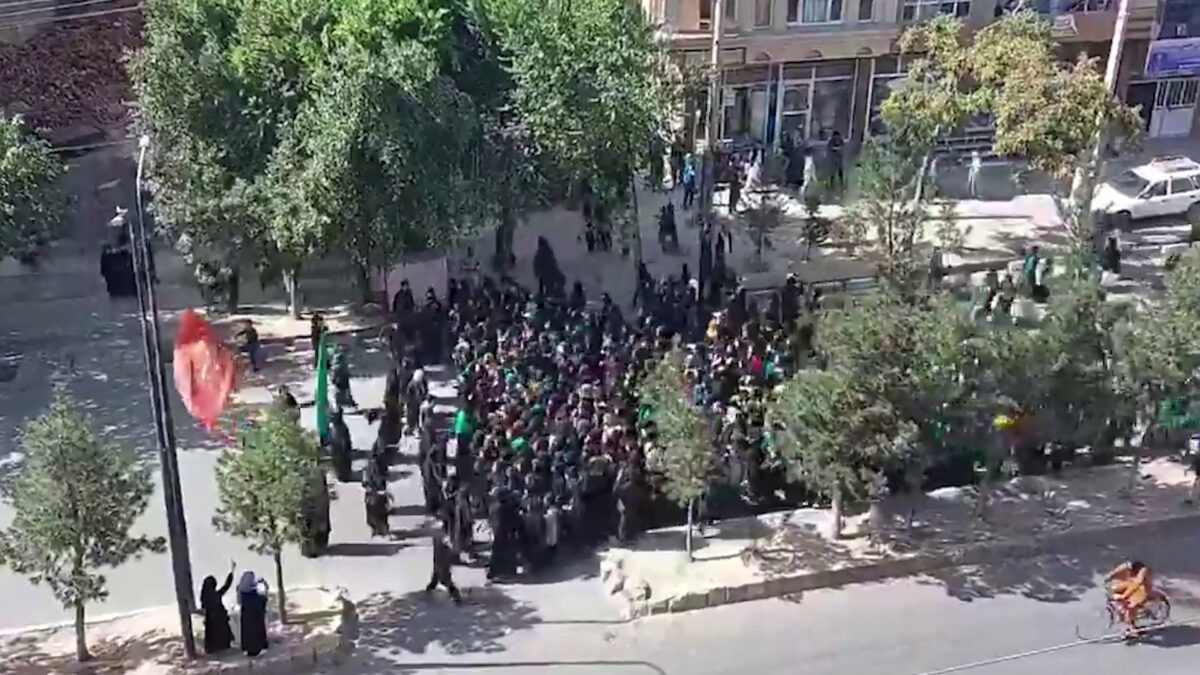Residents in various provinces of Afghanistan sharply criticized the Taliban’s restrictions imposed on the Ashura ceremony, stating that the limitations hindered them from carrying out their plans for the day.
The Taliban’s directives prohibited the raising of Muharram flags in cities, the establishment of Muharram mosques and gates, and in some areas, they prevented women from attending mourning ceremonies.
Internet services of certain telecommunications networks were also disrupted in the western part of Kabul and in some other regions of the country on the day of Ashura.
Video footage circulating on social media captured instances of the Taliban dispersing mourners using aerial shots.
Zainab, a resident of Kabul, expressed her disappointment, stating, “Today, when we wanted to participate in the ceremony, women were not allowed to enter, and we were watching from afar.”
Elyas, a resident of Herat, also voiced concerns, saying, “In some places, women were not allowed to participate in communion ceremonies, and people were not allowed to travel around the city by car.”
Religious scholars have criticized the Taliban’s restrictions, emphasizing that Ashura is a day of connection among Muslims. Mohammad Jawad Rajabzadeh, a scholar of religion, highlighted the significance of Hazrat Ali’s sacrifice on the day of Ashura in preserving the unity of the Islamic school.
The Taliban’s ban and restrictions on Muharram mourning ceremonies have sparked numerous reactions on social media.
Former president Hamid Karzai extended his condolences to those observing the Ashura ceremony on Friday via a tweet and emphasized the importance of unity among all people.
The National Resistance Council for the Salvation of Afghanistan also condemned the Taliban’s restrictions and violence against mourners, stating that such actions are contrary to humane, Islamic, and national unity values in the country.





